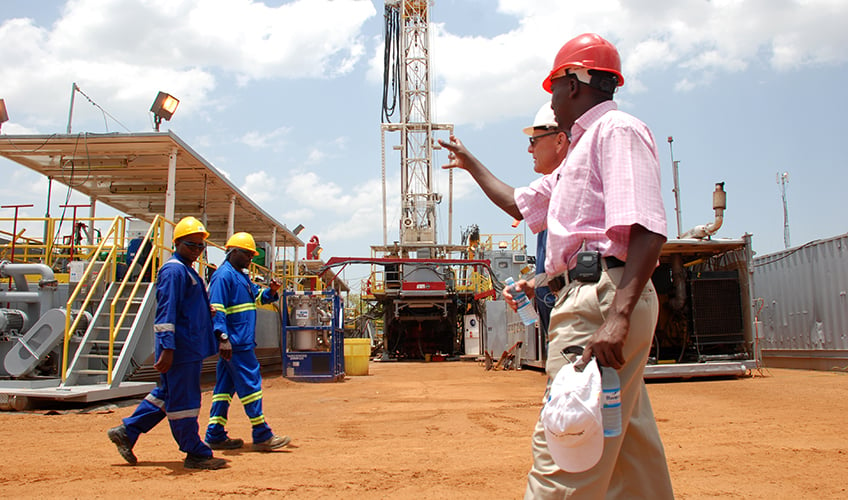Ministry to license two new oil companies

What you need to know:
- After receiving the exploration licences, the two companies will embark on exploration activities in the Albertine Graben, 60 percent of which remains unlicensed.
The Ministry of Energy has said plans are in advanced stages to grant two exploration licences to two companies, Australia’s DGR Global Ltd and the Uganda National Oil Company (Unoc), as part of the second licensing round for the remaining oil blocks in the country’s oil belt—the Albertine Graben.
The ministry said the second round is being undertaken in line with the National Oil and Gas Policy for Uganda (2008) and in accordance with the Petroleum (Exploration, Development and Production) Act 2013.
Speaking yesterday at the oil and gas symposium at Makerere University, the ministry’s Permanent Secretary, Ms Irene Batebe, said the government is undertaking negotiations with the two companies for awarding of both the production sharing agreements and exploration licences.
The symposium was held under the theme “National Content and Sustainability of Uganda’s Oil and Gas Sector”.
“We hope to conclude this negotiation and grant exploration rights (licence) before the end of this year,” Ms Batebe said.
DGR Global Ltd is engaged in discovery of a range of commodities, including oil, copper, gold, nickel , and tin, while Unoc is a statutory body mandated to handle the country’s commercial interests in the oil sector.
After receiving the exploration licences, the two companies will embark on exploration activities in the Albertine Graben, 60 percent of which remains unlicensed.
The last exploration licences were granted in 2017 to Nigeria’s Oranto Petroleum and Australia’s Armour Energy.
These joined French Total Energies EP and China’s Cnooc, which are preparing for the development and production stage to start commercial oil production by end of 2025.
Ms Batebe said 1,500 Ugandans have been certified to provide technical work in the oil and gas sector, 1,400 to supply goods, while 330 farmers have also been trained to provide agricultural products.
The chairperson of the committee of Environment and Natural Resources, Mr Emmanuel Otala, urged the stakeholders to develop the proposed East African Crude Oil Pipeline (EACOP) in sync with the Greenfield refinery to ensure government benefits beyond taxes and employment for nationals.
“We need to focus our attention on the development of EACOP together with the oil refinery project. We should ensure that the development of the pipeline is in tandem with the National Oil Refinery Project because we can develop the oil pipeline for exporting crude oil and we continue importing as well,” he said.




